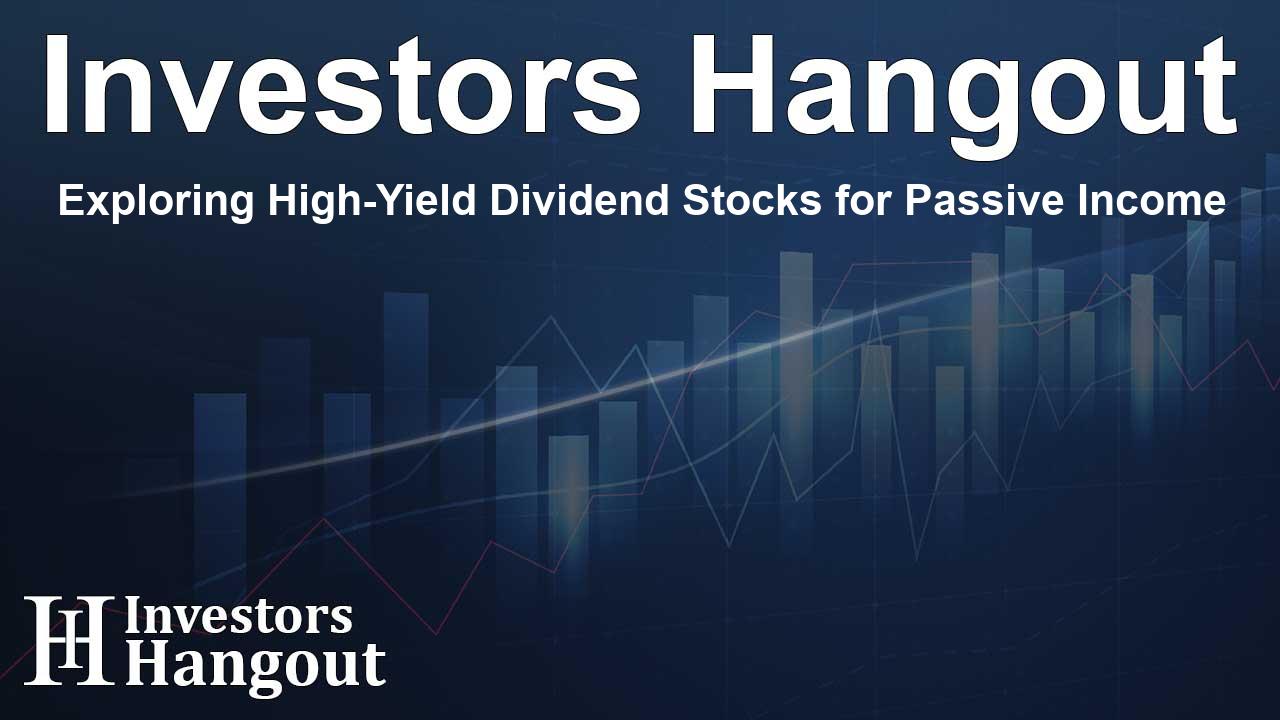Exploring High-Yield Dividend Stocks for Passive Income

High-Yield Dividend Stocks: A Smart Investment Choice
If you're an investor looking for a reliable source of income, high-yield dividend stocks could be a great option for you. While the current S&P 500 index offers a modest yield of 1.2%, some companies outshine with much higher returns. For instance, Portland General Electric (NYSE: POR) provides a yield of 4.1%, Brookfield Renewable Partners (NYSE: BEP) stands at 5.8%, and Enterprise Products Partners (NYSE: EPD) offers an impressive 7.2%. These yields not only make these stocks appealing for their cash payouts but also suggest they may be undervalued in their sectors.
1. Enterprise Products Partners: Reliable Energy Stability
Enterprise Products Partners is a midstream master limited partnership (MLP) that focuses on energy infrastructure. What sets it apart from many competitors is that its revenue doesn’t rely entirely on fluctuating commodity prices. Instead, Enterprise earns steady fees by utilizing its pipelines and other infrastructure. This business model provides a layer of stability during market ups and downs, making it a popular choice for conservative investors seeking income.
2. Brookfield Renewable: A Leader in Renewable Energy
Brookfield Renewable focuses on investing in the renewable energy space, an expanding niche that promises long-term profitability. The partnership yields 5.8%, while its corporate structure offers a slightly lower yield of 5.1%. The difference in yields mainly reflects varying investor preferences, especially among larger institutional investors.
The company's international reach is impressive, with assets spread across North America, South America, Europe, and Asia. Its diverse portfolio includes hydroelectric, wind, solar, and battery storage resources. The company's revenue is primarily driven by contracts, allowing Brookfield to continue growing as the world shifts toward cleaner energy solutions. Additionally, Brookfield has maintained a payout ratio of approximately 70% of its funds from operations, which speaks to its effective cash flow management.
3. Portland General Electric: A Robust Utility Investment
Portland General Electric is both an electric and natural gas utility. With a market cap of about $5 billion, it offers stability and plays a significant role in the technology sector due to transpacific communication cables landing in its service area. The utility is expected to experience an industrial demand growth of around 7.5% annually, which is quite promising.
With a yield of 4.1%, Portland General Electric is particularly appealing compared to the average utility yield of 2.9%. The company boasts an impressive history of annual dividend increases for the past 18 years, coupled with an investment-grade balance sheet. Its strategic investments in clean energy are poised to boost future earnings as rate hikes get regulatory approval, positioning it as a solid choice for those focusing on income.
Selecting the Right High-Yield Dividend Stock
When it comes to high-yield investments, Enterprise Products Partners, Brookfield Renewable, and Portland General Electric each offer attractive opportunities relative to their sectors. Their strong financial health, commitment to increasing dividends, and strategic positioning within their industries suggest they could be great additions to any portfolio focused on dividend income. As you consider options for passive income, think about how these stocks align with your financial objectives.
Frequently Asked Questions
What are high-yield dividend stocks?
High-yield dividend stocks are shares of companies that offer a higher-than-average dividend yield compared to the S&P 500 or similar firms. Investors often seek these stocks for their income-generating potential.
Why invest in dividend stocks?
Investing in dividend stocks can provide a steady income stream, be less volatile than growth stocks, and potentially offer long-term capital appreciation. They are particularly appealing during market downturns.
How can I assess a stock’s dividend sustainability?
To evaluate a stock's dividend sustainability, consider its payout ratio, cash flow statements, and history of dividend increases. A sustainable dividend is one that a company is likely to maintain and grow over time.
What are the risks associated with investing in high-yield dividend stocks?
Risks can include market volatility, fluctuations in business performance, changes in regulations, and the possibility of dividend cuts. Conducting thorough research is essential to manage these risks effectively.
How can I decide which dividend stock to invest in?
Consider important factors such as the company's financial health, dividend yield, growth potential, and overall market position. It's also vital to ensure that your investment aligns with your financial goals and risk tolerance.
About The Author
Contact Henry Turner privately here. Or send an email with ATTN: Henry Turner as the subject to contact@investorshangout.com.
About Investors Hangout
Investors Hangout is a leading online stock forum for financial discussion and learning, offering a wide range of free tools and resources. It draws in traders of all levels, who exchange market knowledge, investigate trading tactics, and keep an eye on industry developments in real time. Featuring financial articles, stock message boards, quotes, charts, company profiles, and live news updates. Through cooperative learning and a wealth of informational resources, it helps users from novices creating their first portfolios to experts honing their techniques. Join Investors Hangout today: https://investorshangout.com/
The content of this article is based on factual, publicly available information and does not represent legal, financial, or investment advice. Investors Hangout does not offer financial advice, and the author is not a licensed financial advisor. Consult a qualified advisor before making any financial or investment decisions based on this article. This article should not be considered advice to purchase, sell, or hold any securities or other investments. If any of the material provided here is inaccurate, please contact us for corrections.
